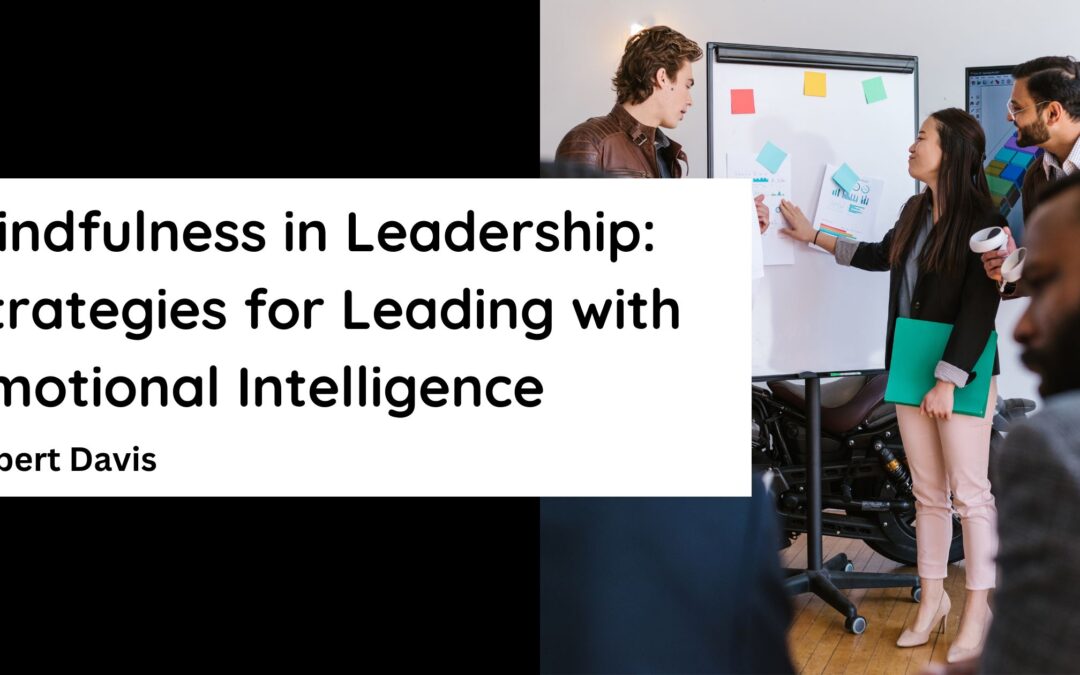In the fast-paced business world, effective leadership is not merely about making decisions or managing teams. It’s about understanding oneself and others on a profound level. Leaders who possess emotional intelligence are not just in tune with their own emotions but also empathetic and mindful of the feelings of those around them. Mindfulness, a practice rooted in ancient traditions, has found its way into modern leadership strategies as a powerful tool for cultivating emotional intelligence. Explore the intersection of mindfulness and leadership, unraveling the strategies that can transform good leaders into exceptional ones.
Understanding Mindfulness in Leadership
At its core, mindfulness is the art of being present in the moment, fully aware of your thoughts, emotions, and the environment around you. When integrated into leadership, it encourages self-awareness, which is the cornerstone of emotional intelligence. Mindful leaders are not reactive; they respond thoughtfully, considering the feelings and perspectives of everyone involved.
Embracing Emotional Intelligence
Emotional intelligence, often abbreviated as EQ, refers to the ability to recognize, understand, and manage our own emotions while effectively recognizing, understanding, and influencing the emotions of others. Mindfulness enhances EQ by encouraging leaders to regulate their emotions, approach challenges with empathy, and foster positive relationships.
Strategies for Mindful Leadership
- Self-Reflection: Mindful leaders engage in regular self-reflection, evaluating their actions and decisions without judgment. This introspection fosters emotional self-awareness, allowing leaders to understand the root causes of their emotions and reactions.
- Active Listening: Mindful leaders practice active listening, giving their full attention to others without interrupting or formulating responses while the other person is speaking. This demonstrates respect and empathy, key components of emotional intelligence.
- Empathy and Compassion: Mindfulness helps leaders develop empathy, enabling them to understand the feelings of others deeply. Compassion, the desire to alleviate others’ suffering, naturally follows, fostering a positive and supportive work environment.
- Stress Management: Mindful leaders are adept at managing stress, which is essential in high-pressure situations. By staying present and focused, they can make rational decisions even in challenging circumstances.
- Cultivating Patience: Mindfulness teaches leaders the art of patience, allowing them to respond rather than react impulsively. This patience is especially valuable during conflicts or when faced with difficult decisions.
- Encouraging Mindfulness Practices: Exceptional leaders encourage mindfulness practices among their teams. This could include meditation sessions, breathing exercises, or even designated quiet spaces within the workplace. Such initiatives promote emotional well-being and enhance overall team productivity.
Incorporating mindfulness into leadership practices can transform workplace dynamics, creating a culture of understanding, empathy, and respect. Leaders who lead with emotional intelligence foster loyal teams, innovative thinking, and a harmonious work environment. By embracing mindfulness, leaders not only enhance their own well-being but also inspire those around them to thrive both professionally and personally.
